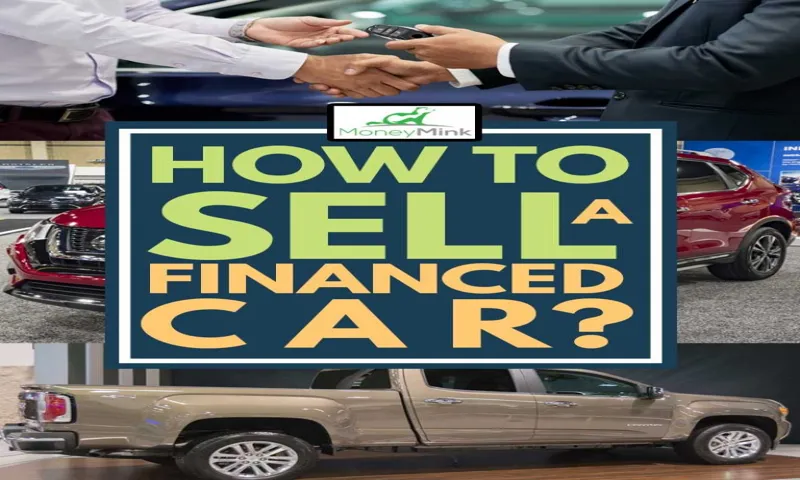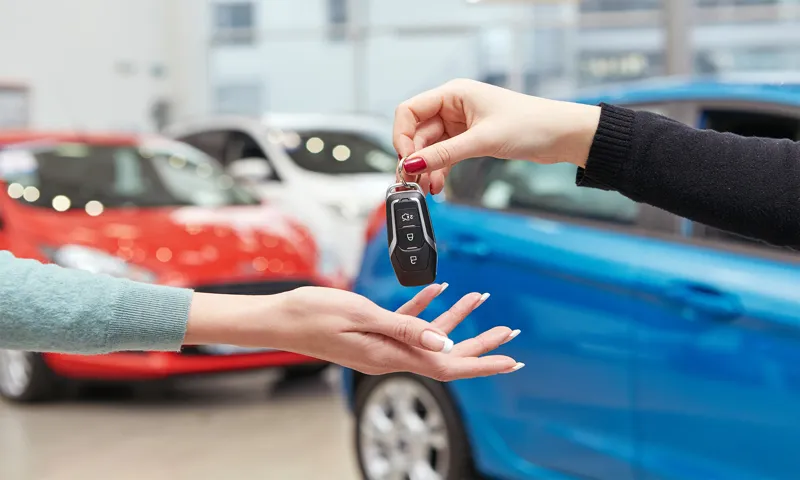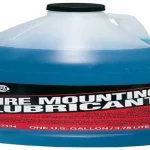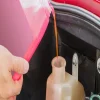Whether you’re looking to upgrade to a newer model or simply can’t keep up with your payments any longer, trading in your financed car can seem like a daunting task. But fear not! There is hope. In this post, we’ll cover everything you need to know about trading in a financed car, from what it means to be “upside down” on your loan to the potential impact on your credit score.
By the end, you’ll have a clear idea of what to expect and how to navigate the process like a pro. So sit back, relax, and let’s dive in!
Table of Contents
Understand Your Loan Terms
Many people often wonder if they can trade in their car while still financing it. The answer to that question varies from case to case. In some situations, it is possible to trade in your financed car if you have built up enough equity in the vehicle.
This means that the value of the car is higher than the outstanding balance on your loan. If this is the case, you can trade in your car and use the equity to pay off the loan. However, if the outstanding balance on your loan is greater than the car’s value, you will have to make up the difference in cash.
Before making any decisions regarding trading in your financed car, it is essential to understand your loan terms, including your interest rate, monthly payments, and repayment schedule. It is also essential to know your car’s current value to determine if you have enough equity to trade it in. Consulting an expert can help clarify any confusion and guide you towards the best option for your situation.
Check for Prepayment Penalties
When it comes to taking out a loan, it’s crucial to understand your loan terms thoroughly. One essential term you should be aware of is prepayment penalties. These penalties are fees charged to borrowers who pay off their loan before the agreed-upon time.
Prepayment penalties can vary in amount and structure, so it’s crucial to read through your loan agreement carefully. Not all loans come with prepayment penalties, so finding a lender that offers this feature can be beneficial. By understanding your loan terms, you can avoid any surprises that could negatively impact your finances.
So, before signing any loan agreement, make sure you know if there are any prepayment penalties and how they could potentially affect you. In summary, checking for prepayment penalties is a vital step when taking out a loan. If you’re unsure about any of the details in your loan terms, it’s always best to ask for clarification from your lender.
By being proactive and informed, you can make the most of your loan and avoid any unforeseen fees or charges. Remember, understanding your loan terms can help you make better financial decisions and stay in control of your money.

Determine Your Car’s Value
When it comes to car loans, it’s essential to know the precise terms of your agreement so you can make informed decisions. Understanding your loan terms means you won’t face any surprises or unexpected costs down the road. The terms of your car loan are determined by different factors such as your credit score, the car’s age and value, and your financial situation.
To determine your car’s value, you can use online tools such as the Kelley Blue Book or NADA to get an estimate of your car’s worth. You’ll also need to take into account any additional features or damage your car might have. Once you understand your car’s value, you can negotiate a better loan term that won’t leave you underwater on your payments.
By doing so, you’ll increase your chances of paying off your loan on time, which can improve your credit score over time. Remember, the key to getting the best car loan is to do your research and ask questions to ensure you’re getting a loan that fits your financial situation.
Finding a Dealer to Take Your Trade-In
If you’re wondering whether you can trade in your financed car, the answer is yes, you can! However, there are a few things that you need to keep in mind. First of all, you have to find a dealer who will be willing to take your trade-in. Some dealerships might not be interested in taking on a car that still has a balance owed on it.
It’s important to do your research and find a dealer who is experienced in dealing with trade-ins of this nature. You should also be aware that the outstanding balance on your car loan will be added to your new loan if you decide to take out a new one. This means that your monthly payments might be higher than they were before.
Before you make a decision, it’s important to crunch the numbers and make sure that trading in your car makes financial sense for you. Overall, trading in your financed car can be a convenient way to upgrade to a new vehicle, but it’s important to do your due diligence and make an informed decision.
Research Local Dealerships
When it comes to trading in your car, finding the right dealership to work with can make all the difference. Researching local dealerships can help you find one that offers fair trade-in value and a smooth process for exchanging your vehicle. Start by checking reviews online to see what other customers have experienced with different dealerships in your area.
You may also want to consider visiting a few in person to get a feel for their level of customer service and professionalism. Don’t be afraid to ask questions and negotiate to ensure you get the best deal possible. Remember to look for keywords such as “trade-in” or “buy-back program” when browsing dealership websites to narrow down your options.
By taking the time to research and compare, you can find a dealership that makes it easy to trade in your car and drive away with a new one.
Get Trade-In Offers from Multiple Dealers
Are you looking to trade-in your vehicle and wanting to get the best deal possible? Finding a dealership that is willing to take your trade-in can be a tricky task. Luckily, there are resources available to assist you in your search. By utilizing online platforms, you can now get trade-in offers from multiple dealers, all without leaving your home.
Simply enter your vehicle’s information and current condition, and multiple dealers will provide you with offers. This not only saves you time but also maximizes the potential profit you can make from your trade-in. So why settle for just one offer when you can get multiple and choose the best one? Start exploring your options today by using online trade-in tools and find the right dealership to take your trade-in.
Negotiate the Best Deal
When it comes to trading in your vehicle at a dealership, the key is to do your research and find the best dealer who will give you the best deal for your trade-in. Start by searching for dealerships near you and checking for any promotions or offers they might have for those looking to trade in their old cars. You should also look into the dealership’s reputation and reviews to ensure that you’re working with a trusted and fair dealer.
Once you’ve found a dealership that you feel comfortable with, it’s important to be knowledgeable about the value of your trade-in. Do your own research beforehand with tools like Kelley Blue Book to understand the fair market value of your vehicle and negotiate accordingly. Remember, the dealership is trying to make a profit on both the sale of the new car and the trade-in, so don’t be afraid to negotiate and speak up for yourself to get the best deal possible.
By doing your due diligence and being confident in negotiations, you can find a dealership that will take your trade-in at a fair price and make the transition to a new car smooth and stress-free.
Paying Off Your Loan
If you’re wondering whether you can trade in a financed car, the answer is yes, but it’s not always straightforward. First, you’ll need to know your payoff amount, which is the total amount you owe on the car loan. Trading in your car means you’ll need to pay off your current loan in full, which can be done by either paying the balance out of pocket or rolling it into your new loan—however, this is not always possible or advisable.
Rolling the balance into your new loan will increase your monthly payments and the total cost of your new car. Therefore, it’s important to carefully consider your options and make sure you’re able to pay off your existing loan before proceeding with a trade-in. Additionally, keep in mind that trading in a car that you still owe money on can affect the value of your trade-in.
You may end up with less money than you anticipated or still owe money on your old loan even after the trade-in. Ensure you discuss all the fine print and potential consequences with your lender and dealership before making a decision.
Consider Gap Insurance
When it comes to paying off your loan, you may want to consider getting gap insurance. This type of insurance can protect you from owing more than your car’s value in case of an accident, theft or damage. Let’s say you took out a loan to buy a car, and after a few months of driving, you get into an accident.
If your car is considered a total loss, your insurance company will only pay for the current market value, which might be less than what you owe on your loan. This gap between the insurance payout and your loan amount is what gap insurance can cover. It’s a great option if you have a high-interest loan or a long-term payment plan.
Gap insurance can give you peace of mind, knowing that you won’t be stuck with a hefty bill for a car that you no longer own. So, if you’re in the market for a loan, ask your lender about gap insurance and consider adding it to your policy.
Make Sure the Loan is Paid in Full
When it comes to borrowing money, paying off your loan should be a top priority. You don’t want to be stuck with debt hanging over your head for years to come. To ensure that you pay off your loan in full, you need to have a clear plan in place.
This means prioritizing your loan payments over other expenses, setting up automatic payments to ensure you don’t forget to pay, and making additional payments whenever possible. It’s important to remember that every extra payment you make helps to reduce the amount of interest you’ll pay over time. So, if you find yourself with extra cash in your budget, consider putting it towards your loan instead of splurging on something else.
By staying focused on paying off your loan, you can take control of your finances and enjoy the peace of mind that comes with being debt-free.
Final Thoughts
If you’re wondering whether you can trade in your financed car, the answer is yes, you can. However, the process may be a bit more complicated compared to trading in a car that you solely own. You should consider factors like your outstanding loan balance, the car’s current value, and any penalties for early repayment.
It’s important to note that if you owe more on the car than it’s worth, known as negative equity, you’ll have to pay the difference to pay off the loan before trading in. Alternatively, some dealerships may take your old car as a trade-in, roll over your remaining car loan balance, and add it to your new loan for a new car. However, this often results in higher monthly payments and interest rates in the long run.
It’s crucial to do your research and weigh your options carefully before deciding to trade in a financed car.
Conclusion
In conclusion, while it is possible to trade in a financed car, it’s important to carefully consider all of the financial aspects involved. While the allure of driving off in a shiny new vehicle may be tempting, it’s important to first weigh the potential impact on your credit, the possibility of owing more money than the car is worth, and whether it’s truly worth the investment. As with most financial decisions, the key is to approach it with a level head and to fully understand the implications before making any moves.
So, can you trade in your financed car? The real answer is: it depends.”
FAQs
Can I trade in my financed car if I haven’t finished paying it off?
Yes, you can. If you owe more on the car than its trade-in value, the remaining balance can be rolled into your new car loan.
Will the dealership pay off my existing car loan when I trade in my car?
Yes, typically the dealership will pay off the loan to the finance company and credit the difference toward the purchase of your new car.
Will I get a better trade-in value if I trade in my financed car for a new car?
Not necessarily. The dealer will evaluate the car’s condition and market value before determining the trade-in value, regardless of whether it’s paid off or not.
Can I trade in a car that still has a lien on it?
Yes, you can trade in a car that has a lien on it. The dealer will contact the finance company to pay off the lien and transfer the title.
Can I trade in a car with negative equity?
Yes, you can trade in a car with negative equity. The remaining balance will be added to the new loan, which could increase your monthly payments or require a longer loan term.
Will I need to provide proof of insurance when trading in my financed car?
Yes, you will need to provide proof of insurance on the car you are trading in, just as you would when purchasing a new car.
Can I trade in a car that is leased?
Yes, you can trade in a leased car. However, you may need to pay off any remaining lease payments or fees before doing so.



